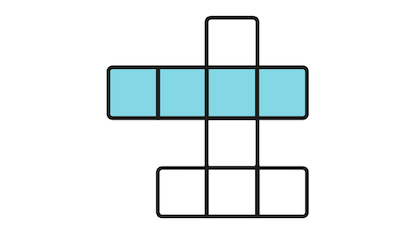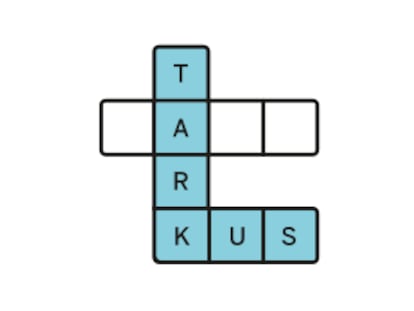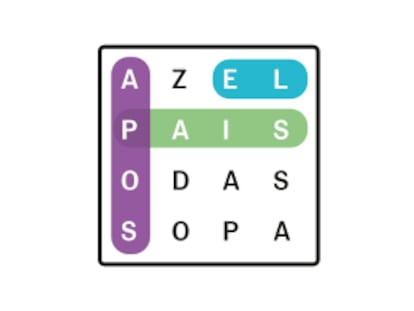La amenaza terrorista en el Magreb
Cable sobre la política antiterrorista en el Magreb
El "número dos" de la embajada de EE UU repasa, en 2008, con representantes españoles varias aspectos de la actualidad militar y de la lucha contra el terrorismo
| ID: | 171424 |
| Date: | 2008-09-25 09:42:00 |
| Origin: | 08MADRID1021 |
| Source: | Embassy Madrid |
| Classification: | CONFIDENTIAL |
| Dunno: | 08MADRID1006 08MADRID738 08STATE100149 08STATE100758 08STATE100790 08STATE97395 08STATE97991 08STATE99701 08STATE99726 |
| Destination: | VZCZCXYZ0000 RR RUEHWEB DE RUEHMD #1021/01 2690942 ZNY CCCCC ZZH R 250942Z SEP 08 FM AMEMBASSY MADRID TO RUEHC/SECSTATE WASHDC 5364 INFO RUEHXP/ALL NATO POST COLLECTIVE RUEHGB/AMEMBASSY BAGHDAD 0198 RUEHBUL/AMEMBASSY KABUL 0184 RUEHNK/AMEMBASSY NOUAKCHOTT 1172 RUEHBS/USEU BRUSSELS RUEKJCS/JOINT STAFF WASHDC RUEKJCS/SECDEF WASHDC RHMFISS/CDR USEUCOM VAIHINGEN GE RHMFISS/COMUSNAVEUR NAPLES IT |
C O N F I D E N T I A L MADRID 001021 SIPDIS FOR EUR/WE, ALSO FOR PM/PPA, EUR/RPM, AND AF/RSA, KABUL PLEASE PASS TO CSTC-A E.O. 12958: DECL: 09/23/2018 TAGS: PREL, MARR, NATO, SP SUBJECT: DEPUTY CHIEF OF MISSION'S SEPTEMBER 23, 2008, MEETING WITH SPANISH MOD SECRETARY GENERAL FOR POLICY LUIS CUESTA REF: A. STATE 100790 B. STATE 100758 C. STATE 97991 D. STATE 97395 E. STATE 99726 F. STATE 99701 G. STATE 100149 H. MADRID 1006 I. MADRID 738 Classified By: DEPUTY CHIEF OF MISSION ARNOLD A. CHACON, REASONS 1.4B,D . 1. (C) Summary: Deputy Chief of Mission Arnold Chacon paid a courtesy call on MOD Secretary General for Defense Policy Luis Cuesta September 23. They discussed NATO and Russia, Afghanistan, Iraq, Somali piracy, Mauritania, U.S. military flights to Guantanamo, and U.S. ship visits to Gibraltar. Cuesta advised that Spain would formally request a meeting in Budapest next month for MOD Chacon with SECDEF. End summary. NATO-Russia ----------- 2. (C) Cuesta reviewed Spain's position on Georgia, noting it had called on Russia to comply with the cease-fire document and condemned Russia's recognition of the breakaway regions. He said the solution must be political, not military. He noted the economic losses Russia was suffering, the damage they had done to their WTO and OECD membership bids, and the harm to Russian business interests. Cuesta said the challenge was to help Russia out of the dead end street it had entered. He compared Russia to an adolescent who had not learned to control his own strength. Russia, he said, did not understand that the use of force brought negative consequences. Nevertheless, Cuesta cautioned against confrontation with Russia. The DCM said that neither could it be business as usual and drawing on refs a and b, explained the U.S. view that now was not the time to resume the NRC Prep Com meetings. He added that A/S Fried had advised the Russians of the postponement of the CFE meeting. Cuesta said Spain did not view this as a return of the Cold War. The threats of the 21st Century were asymmetric and Russian cooperation would be needed to defeat them. He said the challenge would be to find a way to "encapsulate" the Georgia problem while we continued to work with Russia on other issues such as WMDs or Afghanistan. Afghanistan ----------- 3. (C) The DCM congratulated Spain on its contributions in Afghanistan, including the project to stand up an Afghan National Army unit, but noted that although the ANA had made great progress, it was clear that sustainment and enlargement of the ANA were key to success in Afghanistan. The DCM noted the U.S. was expanding its own efforts both in terms of troops and funding, and asked that Spain likewise look at how it could make a greater effort. Specifically (as requested in ref c), the DCM asked Spain provide $50 million per year from 2010-1014 as well as deploy more troops and trainers and ease caveats. The DCM also asked that Spain support the amendment of the ISAF OPLAN to expand CN authorities, emphasizing the direct link between the drug trade and the insurgency and the military advantages of amending the OPLAN (drawing from talking points in ref d). 4. (C) Cuesta said Spain would maintain its current commitment for the medium to long term. However, he said Spain wanted to consolidate its current effort before taking on any new commitments. He noted that Spain already ran a PRT, had contributed two OMLTs, was standing up an ANA company. He added that support for the ANA unit might be extended beyond the two years contemplated in the MOU signed with the GOA. Cuesta noted Spain was working to improve the quality of its forces in Afghanistan, saying Spain had fielded more capable helicopters, deployed UAVs, and was sending improved armored vehicles (he said the first shipment was heading out that day). Cuesta added that before committing to further contributions, Spain would want to see progress on the pol-mil plan agreed to at Bucharest and signs of greater "Afghanization" of the effort. He noted that $50 million a year was a large sum and would be difficult for Spain. Nevertheless, he said Spain was willing to study ways in which it might improve training and assistance for the ANA; however, he reiterated that at the end of the day it was the Afghans who had to fight and win the war. He also expressed concern over the growing alienation of public support resulting from civilian casualties. On the CN mission, Cuesta said it was fundamentally an Afghan responsibility and required a two-pronged approach of alternative development and law enforcement. He said the allies could help with intelligence and training but it was preferable for Afghanistan to shoulder the main effort. 5. (C) The DCM again acknowledged Spain's contribution to date but insisted a greater effort was clearly going to be required by all concerned. Countries such as the U.S. and France were making that greater effort. He noted the essential point with respect to the CN mission was not whether it was appropriately an Afghan or an ISAF responsibility but that success or failure had direct consequences in the fight against the insurgency. "Afghanization," he said, depended greatly on international support for the sustainment and enlargement of the ANA. On the subject of civilian casualties, the DCM drew from the points in ref e, emphasizing that the U.S. regretted the loss of innocent lives and was taking every possible measure to minimize civilian casualties. NATO Training Mission - Iraq ---------------------------- 6. (C) Drawing on ref f, the DCM noted that the Bucharest summit had produced a declaration urging member states to give favorable consideration to Iraqi requests to enhance NTM-I. He pointed out that Spain's Center for Excellence on Countering IEDs was a splendid resource that could make an important contribution. Cuesta noted Spain had provided some training for Iraqis and was willing to consider concrete proposals for additional training. He added that the stability of Iraq was important to Spain. Somali Piracy ------------- 7. (C) The DCM raised the issue of Somali piracy, noting it was much in the news in Spain (Spain has a tuna fleet off Somalia, operating mainly out of the Seychelles, which has been preyed upon by Somali pirates). He noted the U.S. interest in escort assistance for World Food Program shipments to Somalia (ref g). Referring to Spain's decision to deploy a P-3 patrol aircraft to Djibouti, the DCM urged that the various national and EU efforts be coordinated with NATO. Cuesta explained the EU had just created a coordination cell in Brussels (headed by a Spanish naval officer) which he said would work with concerned international organizations (e.g., WFP), receive intelligence, and then establish contact with the countries who had forces in the region to pass on that intelligence. He acknowledged that coordination of the various efforts was essential and said the EU would be coordinating with NATO regarding alliance assets that might be transiting the region and able to help. He reiterated what we had already been told (ref h): Spain could not contribute escorts vessels for WFP shipments because their focus had to be protecting their own fishing fleet. Mauritania ---------- 8. (C) The DCM raised Mauritania and the issue of NATO training activities with that country, noting with concern that Spain had been reluctant to join consensus in the NAC in favor of suspending training activities in September. Cuesta said Spain's condemnation of the coup in Mauritania had been unequivocal (Note: the Spanish MFA issued a statement August 6. End note.); however, it was important for Spain to preserve Mauritania's cooperation in the fight against illegal immigration. He noted Spain provided security assistance to Mauritania for just that purpose. Cuesta added that the history of Mauritanian juntas was to stay in place for a time and then convoke elections. (Note: Gregorio Martinez, Chief of Staff to the Spanish Minister of Interior, was even more explicit, telling us September 23 that while Spain condemned the coup, it was vital to Spain's national security to maintain cooperation with the Mauritanians on illegal immigration and counter-terrorism. He argued that al Qaeda in the Maghreb was trying to make inroads Mauritania, and this was a serious long-term threat for all of Europe and the U.S. He noted other European countries and the U.S. could afford to take a more detached view of Mauritania and focus exclusively on the democracy issue because they were not on the front line in coping with the effects of illegal immigration from Mauritania. End note). Guantanamo Flights, Gibraltar ----------------------------- 9. (C) Cuesta mentioned a Spanish judicial investigation into so-called CIA flights to Guantanamo. The presiding judge in that case subpoenaed MOD records relating to U.S. military flights that passed through Rota and Moron, allegedly carrying detainees to Guantanamo. The media reporting on the case is a hopeless muddle of innuendo and outright misinformation. Cuesta explained that the MOD was complying with the judge's subpoenas, but he hoped the case would be eventually be filed away and forgotten. He stressed that the GOS had no reason to doubt that the U.S. had fully complied with the bilateral agreement on defense cooperation regarding. However, he noted for the record that the GOS did not consider military flights carrying prisoners to Guantanamo to be covered by the blanket flight clearances in effect and expected to be informed regarding the details of any flight that could prove controversial in Spain. Nevertheless, he repeated the GOS had no reason to believe the U.S. had ever failed in this regard. 10. (C) Cuesta raised the issue of Gibraltar, noting Spanish sensitivities to U.S. warships, particularly nuclear submarines, visiting that port. He recognized that operational considerations might sometimes make it necessary for U.S. warships to call there, but asked our understanding in minimizing such visits as much as possible. See ref i for additional background on this issue. MOD Request for Meeting with SECDEF ----------------------------------- 11. (C) Cuesta advised that Spain would be requesting formally through NATO channels a meeting for MOD Chacon with SECDEF on the margins of the NATO Defense Ministers meeting in Budapest in October. Comment ------- 12. (C) Post strongly recommends the proposed appointment for MOD Chacon with SECDEF in Budapest. Chacon has impressed us in her first months as MOD as a serious person who wants to work with the U.S. Immediately after taking the job and heavily pregnant, she visited Spanish troops in Afghanistan, praising their work there. While still on maternity leave, Chacon made a point of inviting the Ambassador to breakfast, we believe her first meeting with a foreign envoy as MOD and the only one she held while still on maternity leave. Doubts about her that were voiced by some of our Spanish military contacts at the outset (too young, too inexperienced) have disappeared, and she is getting high marks from our contacts. She handled the rotation of the CHOD and service chiefs smoothly, and the new picks were well-received here. She also made a point of arranging for opposition leader Mariano Rajoy to meet the new military chiefs, an unusual grace note in Spanish politics and one that stresses the message that Spanish defense policy should be state policy. Chacon (and her husband -- a former communications director for Zapatero) are close to the President. An appointment with SECDEF would be one of the strongest signals we could send of the importance we place on our military relationship with Spain, a relationship that among other things provides us the use of two key military bases in southern Spain, midway between the continental U.S. and Afghanistan and Iraq. Aguirre |
Traduce este documento »
Traducción automática. Puede que el texto traducido no sea fiel al original
Únete a EL PAÍS para seguir toda la actualidad y leer sin límites.
Suscríbete_
Archivado En
- Conflictos diplomáticos
- Cables Wikileaks
- Irak
- Filtración documentos
- Wikileaks
- Afganistán
- Mauritania
- Amenazas terroristas
- Departamento Defensa EEUU
- Rusia
- Terrorismo islamista
- Georgia
- Somalia
- Política antiterrorista
- Magreb
- Europa este
- Geopolítica
- Oriente medio
- África subsahariana
- Estados Unidos
- Oriente próximo
- África
- Asia
- España
- Europa







































































